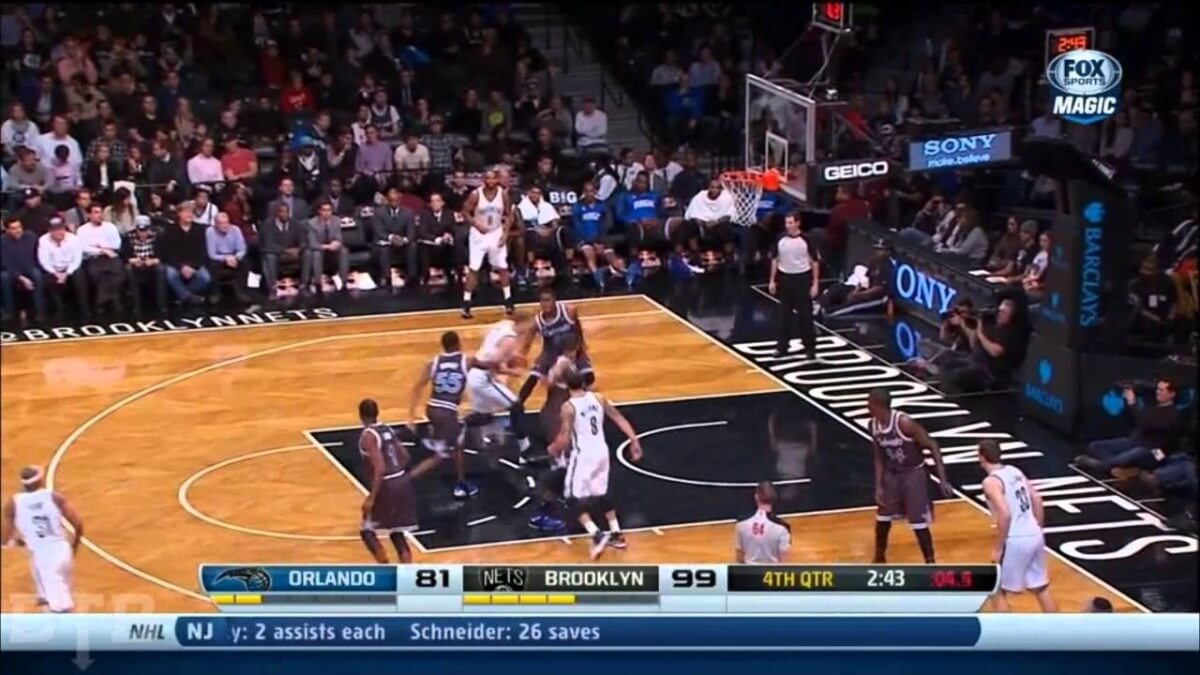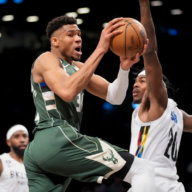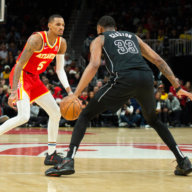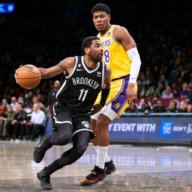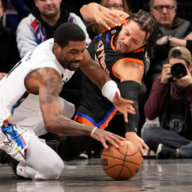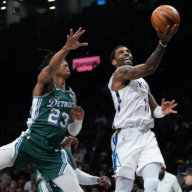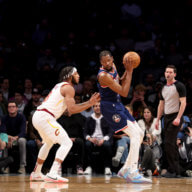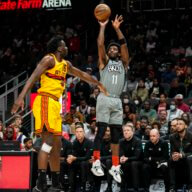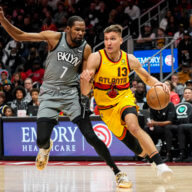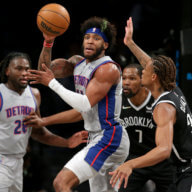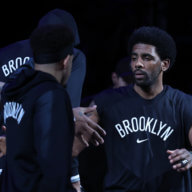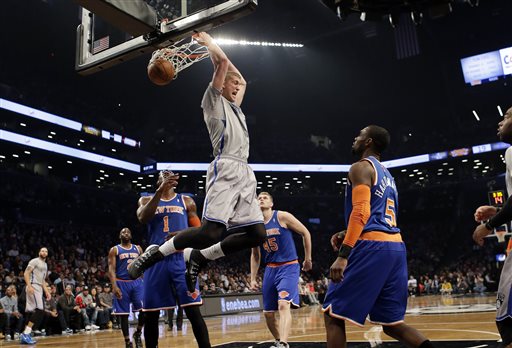
In these United States of America, we love our country. We take sports way too seriously. When combining these two passions, people can get quite emotional.
That brings us to Mason Plumlee:
2 things from Team USA: post practice games between Durant/Harden/George are epic; Mason Plumlee likely to make team over DeMarcus Cousins
— Brian Windhorst (@WindhorstESPN) July 31, 2014
Oh cool glad to see the team is meshi…WAIT, WHAT?
Yes it seems as if Brooklyn’s own Mason Plumlee has a strong chance of representing the USA on the final 12-man roster for the upcoming FIBA basketball championship.
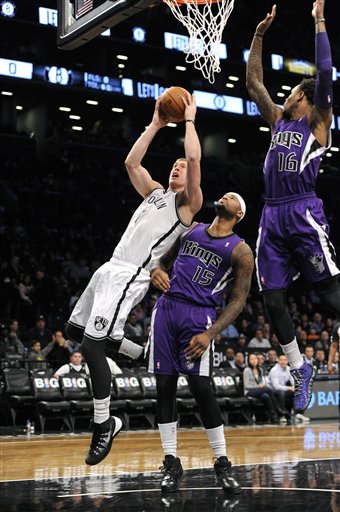
Most of the immediate reaction cited Boogie’s demeanor as a reason for his possible omission and played up the fact that current USA Head Coach Mike Krzyzewski also served as Plumlee’s college coach at Duke.
Those are surely a factor. But Plumlee also makes sense on this USA roster for purely #basketballreasons.
Let’s get this out of the way: I am not going to try to convince you that Mason Plumlee is a better player than DeMarcus Cousins. He’s not.
Let’s say that again. Mason Plumlee is not a better basketball player than DeMarcus Cousins. Even Nets GM and Blue Devil alumnus Billy King would drive Plumlee cross-country to Sacramento himself if he had a chance to swap him for Cousins.
But Plumlee may be the better fit for this roster. Kryzyzewski said about this roster’s construction that “You try to get eight or nine guys that are going to be the core and three or four guys that complement them.”
As part of that core, John Schuhmann has repeatedly reported that Derrick Rose, Stephen Curry, James Harden, Paul George, Kevin Durant, and Anthony Davis are locks. He also pegs Klay Thompson as the seventh or eighth man in the rotation.
Those seven plus one more (who we’ll say for argument’s sake is Kyrie Irving) comprise the core.
In a theoretical world where basketball possessions were distributed evenly, every player on the court would get 20% of his team’s offensive possessions. But that’s not true. The better players are naturally more ball dominant. USG% then tells us how many of his team’s possessions a player uses.
Here is each USG% of the ‘core’ last season:
Rose – 31.5% (32.2% in his last full season)
Curry – 28.3%
Harden – 27.8%
George – 28.3%
Durant – 33.0%
Davis – 25.2%
Irving – 28.2%
Thompson – 22.6%
Even with the relatively low-usage Thompson, that’s a lot of ball-dominant players. Seeing how at least three of these guys will be on the court at any given time, it makes more sense to fill out the roster with guys who can produce in limited minutes without dominating the ball.
USA basketball chairman Jerry Colangelo stated on Wednesday that these will be “players you have to fill certain specific roles, a shooter, an energy guy, another big.”
The shooter will likely be three-point savant Kyle Korver (14.2 USG%, .472 3P%), and the energy guy Newark native Kenneth Faried (21.3 USG%, a billion rebounds per game). Both of these guys fit the description: they can help without dominating the ball.
That leaves the big. Durant and Davis will be on the starting front line, meaning there won’t be that many leftover minutes for a bench player to come in and contribute.
That is where Cousins doesn’t fit. DeMarcus Cousins is not a bench player. He is an elite rebounder, and dominates in the low post. But his production value comes from playing a lot of minutes and by effectively using an absurd amount of possessions that the extra big isn’t likely to get. His 32.7 USG% this past season was dwarfed only by Durant, the MVP. Think about that. Cousins even uses more possessions than than Carmelo Anthony.
As Schuhmann notes, Cousins won’t get post-ups with the likes of Rose, Curry, Harden, and Durant on the team. During the season, nearly 30 percent of Cousins’s possessions were in post-ups (per Synergy), by far his most common way of trying to score. Without those post-ups, Cousins loses a lot of his on-court value. He does not fit the bill as a complementary piece.
As I’m sure you’ve guessed by now, Mason Plumlee does.
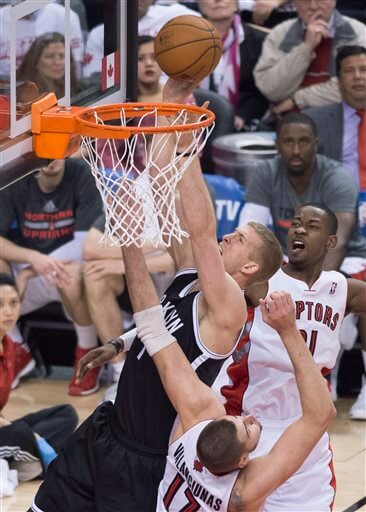
He played well enough off the bench to earn a real rotation spot. With that spot, he was tasked to do many of the things Colangelo and Krzyzewski are apt to ask of that last big, playing at maximum effort for the short sequences he spent on the court. In those sequences he excelled, averaging 7.4 points and 4.4 rebounds per game in only 18.2 minutes.
Those numbers can be misleading though, as Plumlee’s minutes and impact increased as he earned the trust of the coaches and injuries decimated Brooklyn’s roster.
Win shares per 48 minutes is an estimate of the number of wins a player adds to his team per 48 minutes on the court similar to WAR in baseball. Plumlee added .176 WS/48 last year while Cousins provided .166. Cousins can maintain such production over big minutes, whereas Plumlee’s flaws get exposed the more he plays because of his offensive shortcomings. Those big minutes are not there though, and in short bursts Plumlee provides sizable production. Plumlee only used 17.1% of his team’s possessions when on the court, but maximized his impact as he shot 65.9% from the field using his repertoire of dunks, alley oops, and, uh, reverse dunks.
If Plumlee makes the squad, you’re most likely to see him soar to throw down a lob or put back a miss. Maybe he’ll even throw a spectacular block in there. (One LeBron James could vouch for that.) He does the dirty work and catches opponents sleeping on his considerable athleticism.
Cousins would be a square peg in the proverbial round hole. Plumlee is not going to take any shots he shouldn’t take, nor demand the ball. He is at his best when he is doing what Coach Krzyzewski will ask of him. His strengths are magnified by the available role on the team, whereas Cousins’ are diminished.
Plumlee may still be passed up in favor of Cousins, but it is that kind of play that has sparked his meteoric rise through the ranks of USA basketball, and why he makes sense for the USA in basketball terms. It’s not just because he spent his college years roaming the floors of Cameron Indoor (though it helps). It’s because, in the simplest terms, he fits.

